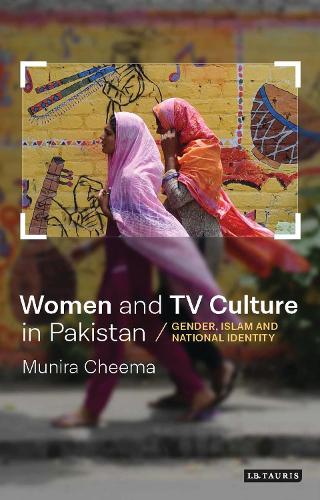
Women and TV Culture in Pakistan: Gender, Islam and National Identity
(Hardback)
Publishing Details
Women and TV Culture in Pakistan: Gender, Islam and National Identity
By (Author) Munira Cheema
Bloomsbury Publishing PLC
I.B. Tauris
30th July 2018
United Kingdom
Classifications
Tertiary Education
Non Fiction
Media, entertainment, information and communication industries
Religion and politics
Islam
302.2345082095491
Physical Properties
Hardback
240
Width 138mm, Height 216mm
422g
Description
The television broadcasting culture of Pakistan was changed dramatically in 2002. The President, General Pervez Musharraf, introduced a policy of liberalisation that enabled controversial issues such as honour killings, adultery, stoning to death, domestic violence, marriage after divorce and homosexuality to be increasingly depicted on screen. Women and TV Culture in Pakistan is the first in-depth analysis of this change in television content. Munira Cheema focuses on how `gender issues' are dealt with on TV and examines the impact this has on female viewers. In Pakistan, television is often the only way in which women can access the public sphere (except through male guardians) and this book evaluates how TV content allows them to navigate their intersecting identities as Muslims, women and Pakistanis. At a time when religious conservatism is on the rise in the country, this book investigates why producers choose to focus on gender-based issues and the extent to which religion dictates social behaviour and broadcasting choices. Based on interviews with women viewers in Karachi as well as industry professionals including writers, directors and ratings experts, the research is a much-needed and original contribution to global television studies and gender studies.
Author Bio
Munira Cheema is a Lecturer in Media and Cultural Studies at the University of Sussex. She previously taught at Roehampton University and the University of Arts, London. She is a contributor to Television for Women: New Directions and Women in Media and Politics: Perspectives from Nations in Transition. She completed her AHRC-funded PhD at the University of Sussex.
